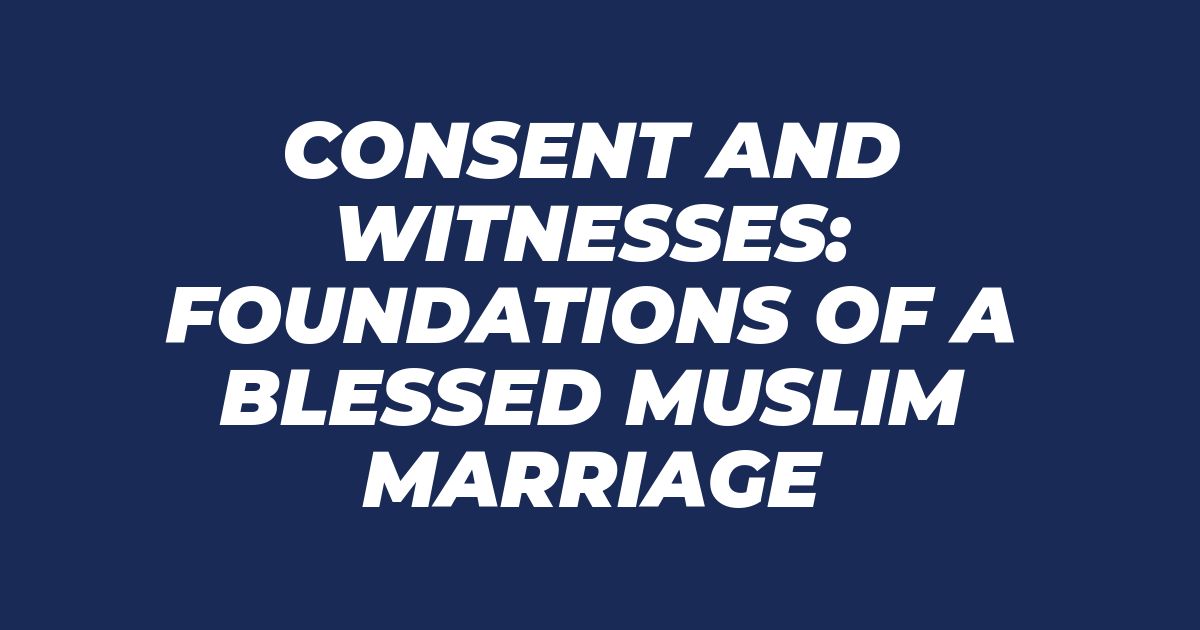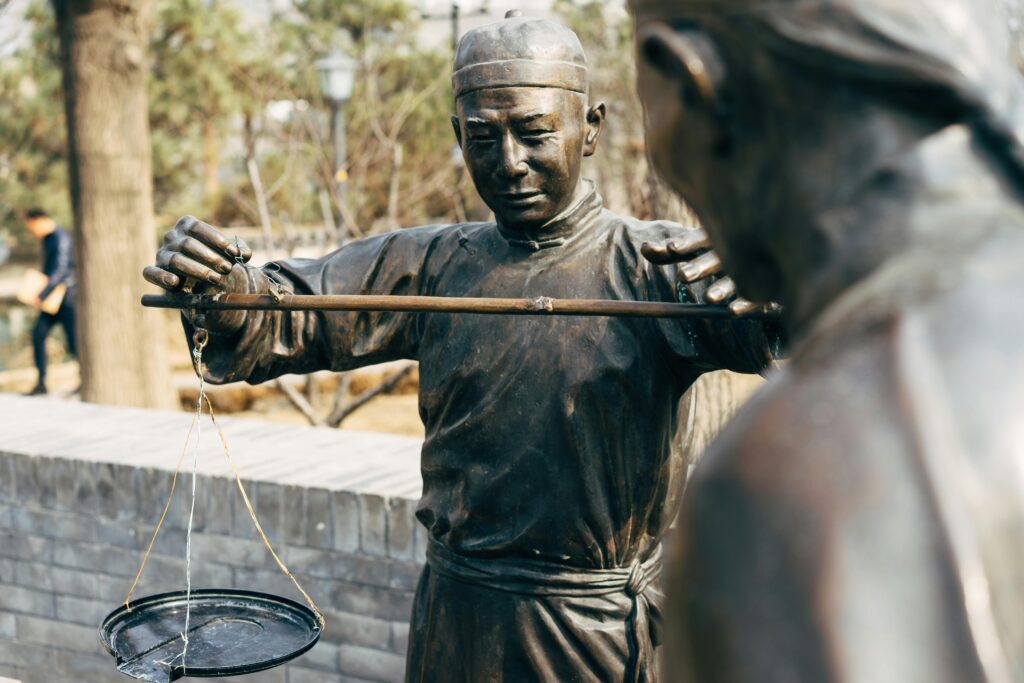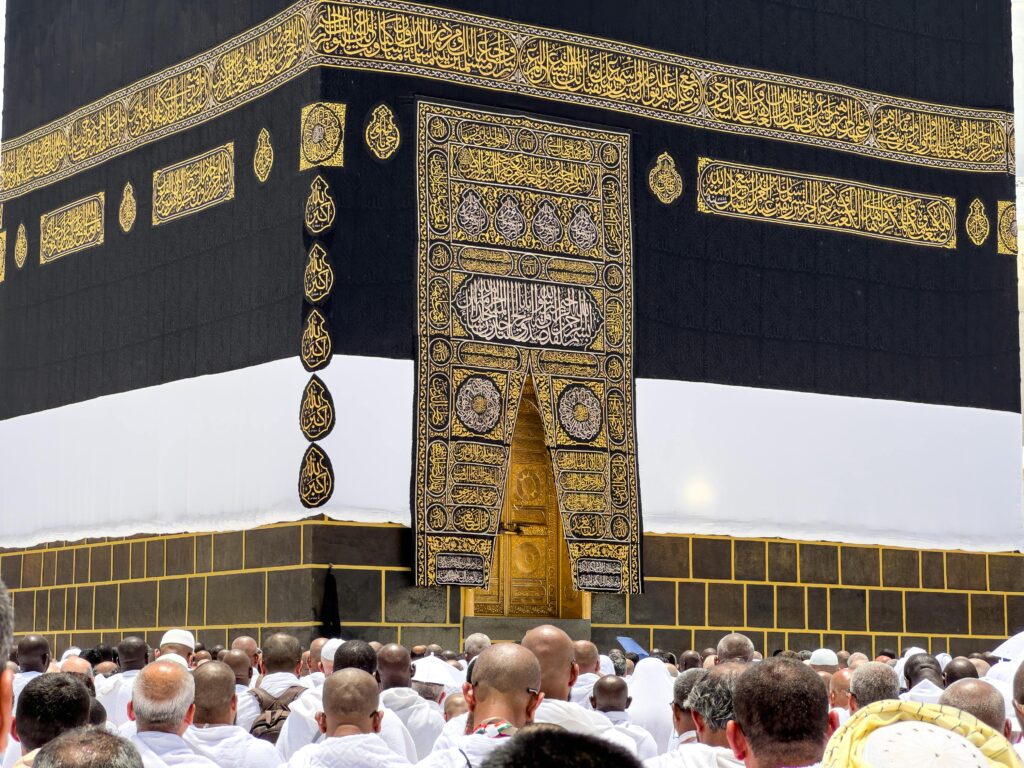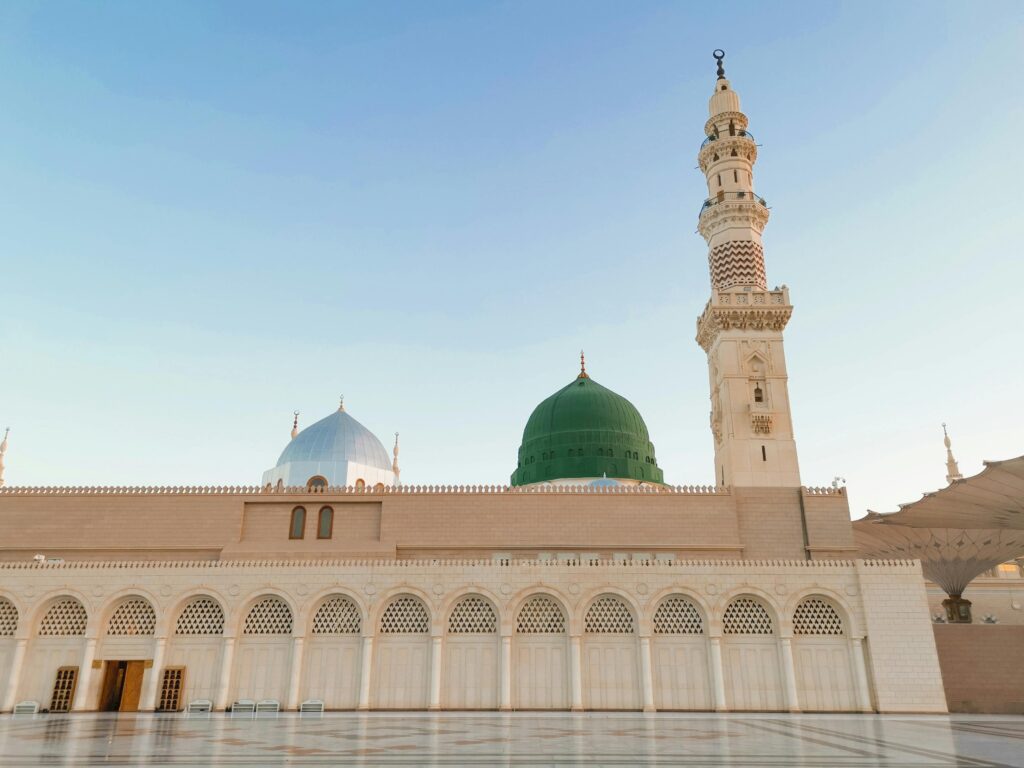Understanding Consent and Witnesses in Muslim Marriage (Quran Guidance Explained)
Marriage in Islam is more than a legal contract; it’s a sacred covenant that binds two souls and families in a lasting bond. Central to this union are two essential elements: the free consent of both the bride and groom, and the presence of witnesses to confirm the agreement. The Quran and Hadith emphasize that a marriage without mutual agreement and witnesses lacks its full spiritual and legal weight.
This post will clarify how consent and witnesses are understood in Islamic teachings, showing their vital roles in protecting the rights and dignity of both partners. By exploring these fundamentals, you’ll gain a clearer picture of how tradition and faith come together to shape Muslim marriages today.
Watch this helpful video for a deeper look: The proper way of doing Nikah (Marriage) and deciding the Mahr – Sheikh Assim Al Hakeem.
The Concept of Consent in Muslim Marriage
Consent forms the core of a valid Muslim marriage. It’s not just a formality but a serious, deliberate agreement by both parties. The Quran and Islamic teachings make it clear that marriage requires a free and mutual agreement. That means each partner fully understands what they are committing to, and their approval is given voluntarily—without pressure, force, or deception. This foundation keeps the marriage genuine, fair, and respectful.
Free and Mutual Consent Explained
Free consent means both the bride and groom actively agree to marry, knowing all the details and implications. It is a clear “yes,” not hesitation masked by silence or confusion. If coercion or pressure creeps in, it breaks the contract. The Quran repeatedly stresses that no soul should be forced into a relationship.
During the Nikah ceremony, consent is expressed openly—typically through the bride and groom verbally accepting the marriage offer (Ijab-o-Qubool). In some traditions, the bride’s explicit verbal approval is essential, while others may consider her silence at the right moment as consent if it’s clear she understands the situation.
The process ensures that both sides walk into the marriage willingly and fully aware of their commitments. This free exchange of agreement is what makes the marriage contract strong, secure, and blessed.
For a detailed look at consent within Islamic law, resources like Britannica explain the legal and spiritual importance of mutual consent in marriage. Britannica on Marriage in Islam
Role of the Bride’s Guardian (Wali)
The wali acts as a guardian who looks out for the bride’s best interests during the marriage process. Traditionally a father, brother, or close male relative, the wali helps protect the bride from unfair treatment or hasty decisions. His role is not to override her choice but to guide and support her.
Among Sunni schools of thought, the wali’s role varies:
- The Hanafi school allows an adult, sane woman to contract her own marriage without the wali’s consent. For them, the wali’s role is more advisory once the woman reaches full maturity.
- Other schools like Shafi’i, Maliki, and Hanbali generally require the wali’s approval for the marriage to be valid, particularly for brides who are younger or new to marriage.
This difference reflects the balance between protecting the bride and respecting her ability to make her own decisions. In all cases, the wali should never pressure or force a woman into marriage. For independent adult women, the law recognizes their capacity to choose and approve marriage contracts on their own.
If you want to explore more about the wali’s role and its nuances across different Islamic traditions, detailed discussions can be found at respected sources like Masjidds.org on Marriage Without a Guardian and HalalMarriageContract.com’s guide on guardians.
By understanding these aspects, it becomes clear how Islamic law safeguards the bride’s rights while honoring her free will and dignity in choosing a life partner.
The Importance of Witnesses in Muslim Marriage
In Islamic marriage, witnesses hold a role beyond mere formality. Their presence acts like a bridge connecting private consent to public acknowledgment, ensuring the union is true, transparent, and protected in both spiritual and social realms. The Quran and Prophetic traditions make it clear that the marriage contract must be witnessed, not only to verify the agreement but also to build trust among families and the community. Witnesses play a key role in preventing secret marriages and safeguarding the rights of both spouses.
Qualities and Requirements of Valid Witnesses
Islamic law sets clear standards for who qualifies as a witness in Nikah. Witnesses must be:
- Sane: Fully in control of their mental faculties
- Adult: Mature enough to comprehend and attest to the marriage
- Muslim: Practicing believers to uphold the sanctity of the contract
- Trustworthy: Individuals known for their honesty and good character
These criteria ensure the witnesses can reliably confirm the legitimacy of the marriage.
Differences emerge among Islamic schools of thought regarding witnesses. For example, the Hanafi school permits two women to replace one male witness without needing a special reason. This allowance recognizes the reliability of women while preserving the Quranic mention of two witnesses. Other schools like Shafi’i or Hanbali typically require two male Muslim witnesses.
Interfaith marriage witness rules are stricter. Most scholars agree at least the male witness must be Muslim, affirming the Islamic identity of the marriage. Some opinions hold that non-Muslim witnesses do not fulfill the requirement due to the religious nature of the contract.
This variety reflects Islam’s balance between honoring cultural contexts and protecting the integrity of the marriage contract. For more details on witness conditions and rulings, authoritative sources like Fiqh Islam Online’s guide on marriage witnesses offer thorough explanations.
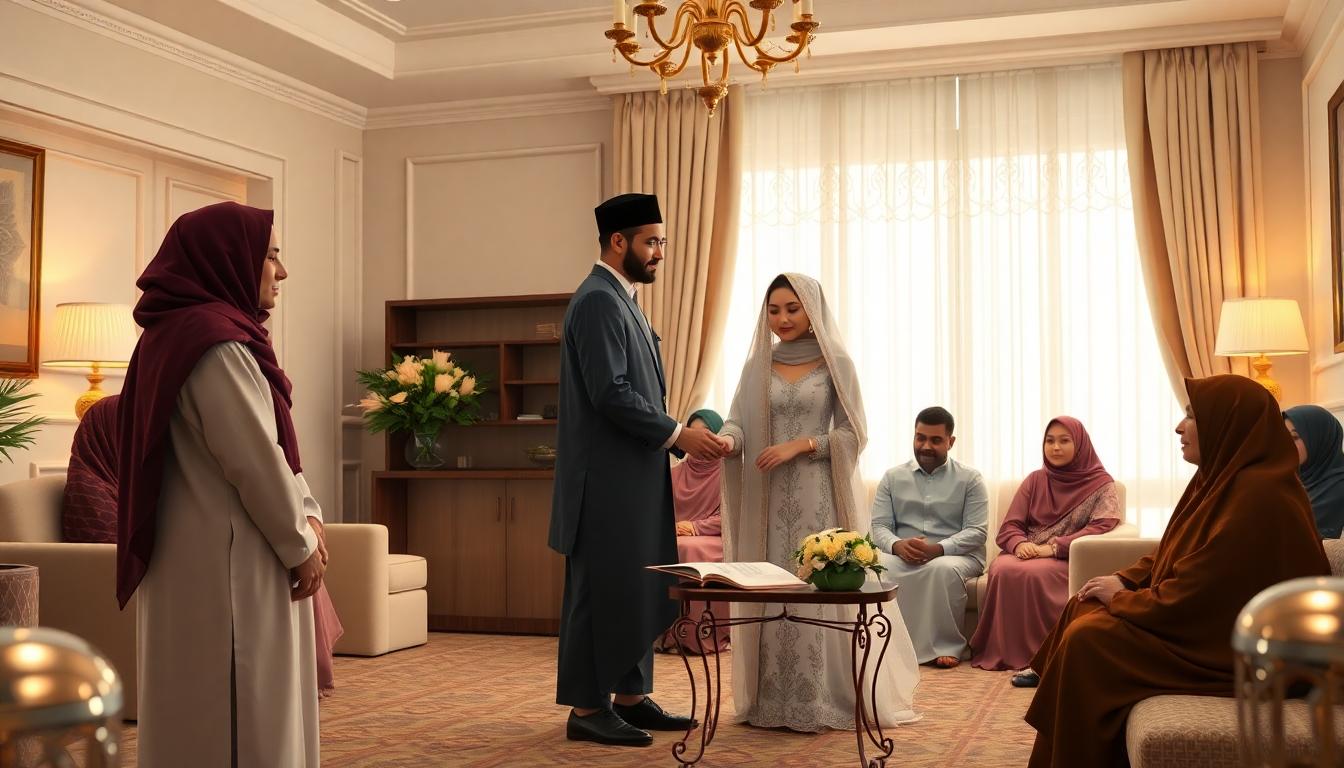 Image of a Nikah ceremony showing bride, groom, imam, and witnesses — Image created with AI
Image of a Nikah ceremony showing bride, groom, imam, and witnesses — Image created with AI
Legal and Social Functions of Witnesses
Witnesses confirm more than words. They verify the identities of the bride and groom, ensuring the people entering the contract are the ones agreeing to it. This verification protects against fraud or mistaken identity.
Their presence also formally records the event. In case of future disputes, these witnesses are the living proof that the marriage took place with the proper procedures observed. They can testify if consent was freely given or if any irregularity occurred, making them crucial in preserving justice.
Witnesses make the marriage public, transforming a private vow into a recognized social bond. This public nature discourages secret unions that may cause family or community problems later on. The Quran encourages announcing marriages openly, emphasizing social responsibility and transparency.
The mandatory presence of at least two witnesses is a way to secure this openness. The Prophet Muhammad said: “There is no marriage except with a guardian and two just witnesses,” linking witnesses firmly to the validity of the Nikah.
Socially, witnesses help the community recognize the new couple. Their testimony connects the couple to communal support or counsel if needed. This makes the marriage a shared responsibility among families and society, not just between two individuals.
This public announcement through witnesses parallels the way contracts require signatures — it leaves no room for doubt. The sacred bond is seen, heard, and accepted by all, which builds trust and respect both within the marriage and the wider Muslim community.
To understand how witnesses serve as safeguards for marriage integrity, the detailed article “Conditions of Witnesses to the Marriage Contract” helps clarify the legal and social dimensions.
Essential Components and Practices in Muslim Marriage
When it comes to a Muslim marriage, several key elements combine to form a sacred, binding contract. Beyond the mutual consent and witnesses discussed earlier, the marriage relies on other essential practices and components that ensure the rights and responsibilities of both parties are clearly defined and respected. Two vital cornerstones of this process are the Mahr and the Nikah contract. These elements weave together the spiritual, legal, and social layers of the union, anchoring the marriage firmly in Islamic tradition and modern law alike.
Mahr: Symbol of Commitment and Security
The Mahr holds a special place in every Muslim marriage. Often described as the bride’s gift or dower, the mahr is much more than a tradition—it is a mandatory obligation placed upon the groom by Islamic law.
At its core, the mahr is a symbol of respect, sincerity, and responsibility toward the wife. It represents the groom’s promise to provide financial security and acknowledge the value of the partnership. The Quran requires this gift to be clearly agreed upon before the marriage takes place.
The mahr can take many forms:
- Money: The most common and straightforward form, which may be given immediately or deferred.
- Possessions or valuable items: Jewelry, property, or other assets.
- Services or teaching: In some cases, it can be educational or spiritual in nature, like teaching Quranic verses.
In India and many other countries, a well-documented mahr agreement carries legal weight. It protects the wife’s rights in case of disputes or divorce, acting as a financial safeguard. Because it is obligatory, a marriage without an agreed mahr is not considered fully valid under Islamic law.
The mahr is often discussed openly between families and recorded in the marriage contract. This transparency prevents misunderstandings and reinforces the groom’s commitment in a tangible way.
For more detailed insights on the nature and legal aspects of mahr, Mehr in Muslim Law offers a thorough explanation.
Nikah Contract and Ceremony Process
The heart of a Muslim marriage lies in its Nikah, a formal contract sealed through ceremony and sacred vows. The process begins with the proposal and acceptance, known as Ijab and Qubul. This exchange confirms that both bride and groom agree freely to the union without any pressure.
The Nikah contract:
- Defines the rights and responsibilities of both husband and wife.
- Includes the agreed-upon mahr.
- Is a legal and religious document binding both parties to their promises.
An imam or qualified officiant usually conducts the Nikah ceremony. Their role extends beyond just hosting the rituals—they guide the couple through the correct steps, recite relevant Quranic verses, and remind the parties of their duties.
During the ceremony:
- The proposal (Ijab) from either the bride’s guardian or groom is stated aloud.
- The acceptance (Qubul) by the other party is announced clearly.
- The Nikah contract is read, signed, and witnessed by at least two just Muslim witnesses.
- The imam may deliver a short sermon (Khutbah) emphasizing the spiritual significance of marriage.
Both bride and groom, along with witnesses and the wali (guardian), provide their explicit consent and signatures. This formality ensures the union is public, transparent, and lawful according to Islamic principles.
Proper documentation of the Nikah contract also plays a vital role in marriage registration and legal recognition in many countries, including India. This registration protects the rights of both spouses and helps resolve any future disputes.
For a clear understanding of the ceremony’s detailed steps and the role of the contract, the article on Conditions of Witnesses to the Marriage Contract provides excellent guidance.
Contemporary Context and Variations in Understanding Consent and Witnesses
In today’s world, the understanding of consent and witnesses in Muslim marriage reflects both long-held traditions and adaptations to different contexts and legal systems. While the Quran’s clear guidance remains the foundation, diverse Islamic legal schools interpret specific roles and rules in ways that can surprise those unfamiliar with these differences. At the same time, Muslim couples often balance their religious commitments with civil laws, especially in countries where Islamic marriage has no automatic legal status. Let’s explore these variations and how they shape the practice of Nikah today.
Variations Among Islamic Legal Schools
The role of the wali, or guardian, and the requirements for witnesses are not uniform across all Islamic schools. Each school frames these elements based on its understanding of Islamic jurisprudence and local practices.
- Wali’s Role:
The Hanafi school takes a more flexible approach. Here, an adult, sane Muslim woman can conduct her own marriage contract without needing the consent or presence of a wali, though involving a wali is recommended for added protection. In contrast, schools like the Shafi’i, Maliki, and Hanbali require the wali’s explicit consent for the marriage to be valid, emphasizing the protection of the bride’s interests through his guidance. - Witness Qualifications:
Witness rules also show differences. Most schools insist on two male Muslim witnesses. However, the Hanafi school uniquely allows one male witness to be replaced by two female witnesses without requiring special reasons. This adaptation acknowledges women’s reliability as witnesses and aligns with Quranic references. - Interfaith Marriages:
Witness requirements become even more complex in interfaith marriages. Hanafi jurisprudence generally permits witnesses who are not Muslim in some interfaith contexts, expanding the pool of acceptable witnesses. Other schools maintain stricter standards, requiring at least the male witness to be Muslim to uphold the Islamic identity of the marriage contract.
These differences affect how Nikah ceremonies are conducted across communities and countries. They allow for some cultural and legal flexibility but always aim to safeguard the essential elements of consent and transparency.
A detailed comparison of these perspectives can be found in sources like Comparing Sunni Madhhabs (Hanafi, Maliki, Shafi’i, Hanbali) which sheds light on these important distinctions.
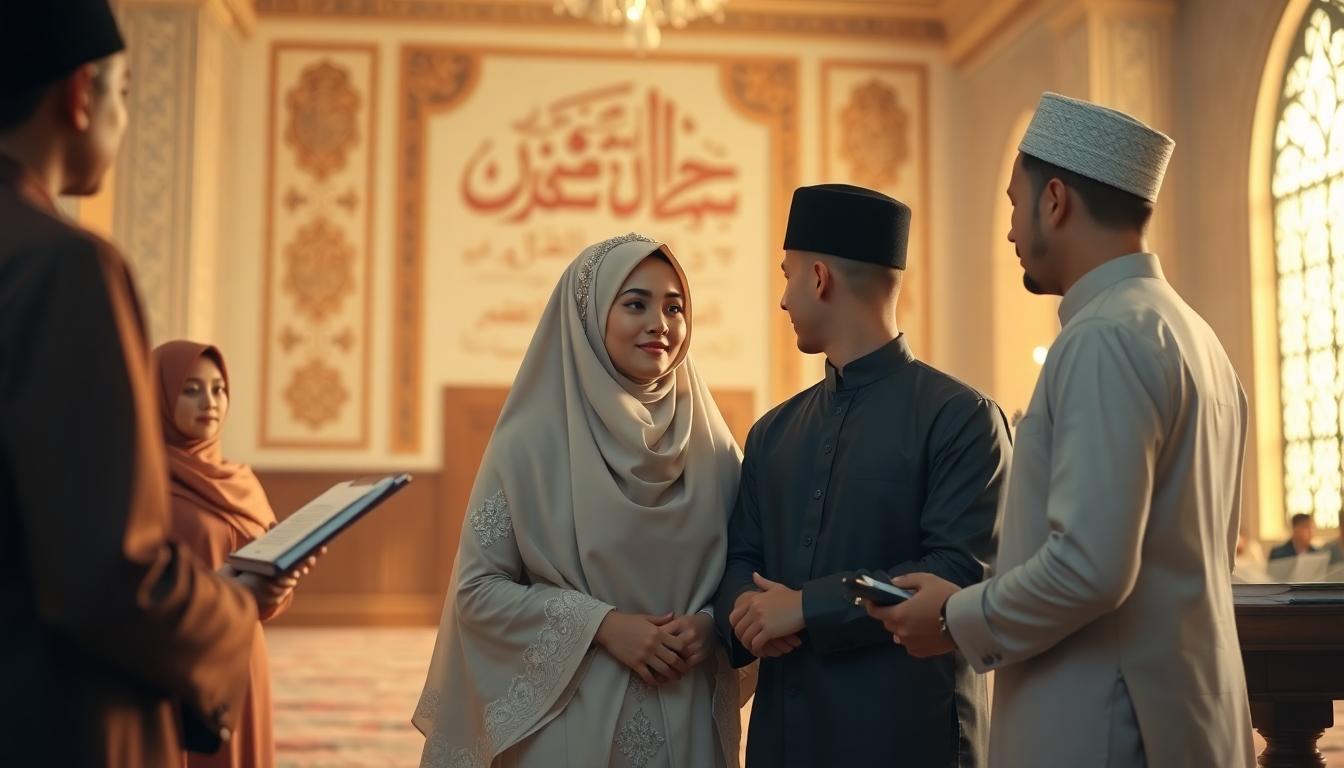 Muslim couple at a Nikah ceremony with wali and witnesses inside a mosque — Image created with AI
Muslim couple at a Nikah ceremony with wali and witnesses inside a mosque — Image created with AI
Navigating Civil Law and Islamic Marriage Requirements
For Muslim couples living in countries like India or Western nations, the process of marriage often involves both religious and civil legal steps. Many choose to have a religious Nikah ceremony alongside obtaining a civil marriage license to secure their rights under secular laws.
- Dual Recognition:
The Nikah ceremony fulfills Islamic legal requirements and spiritual commitments, while the civil marriage registration ensures the couple’s union is legally recognized by the government. This is crucial for matters like inheritance, custody, divorce, and protection against forced or unregistered marriages. - Mahr and Legal Enforceability:
Issues arise around recognizing Islamic contracts such as the mahr within civil law frameworks. While Hindu Marriage Act or Special Marriage Act in India covers civil marriages, ensuring the mahr is enforceable sometimes depends on the quality of documentation and civil court awareness. In non-Muslim-majority countries, Muslim spouses may face challenges protecting their religious marriage rights without clear registration. - Practical Challenges:
Differences in how governments treat religious marriages can cause confusion. Couples might face conflicting requirements, such as mandatory civil registration but no official role for Islamic witnesses or wali in the legal record. This dual system calls for careful planning and knowledgeable guidance.
Navigating these dual systems requires understanding both religious obligations and civil regulations. Muslim couples often consult community leaders and legal experts to secure their marriage’s validity on all levels.
This balance between faith and law highlights the modern realities of Muslim marriage practices globally, where tradition meets bureaucracy. For more insights on combining religious Nikah with civil law, resources like Islamic marital practices on Wikipedia provide a well-rounded overview.
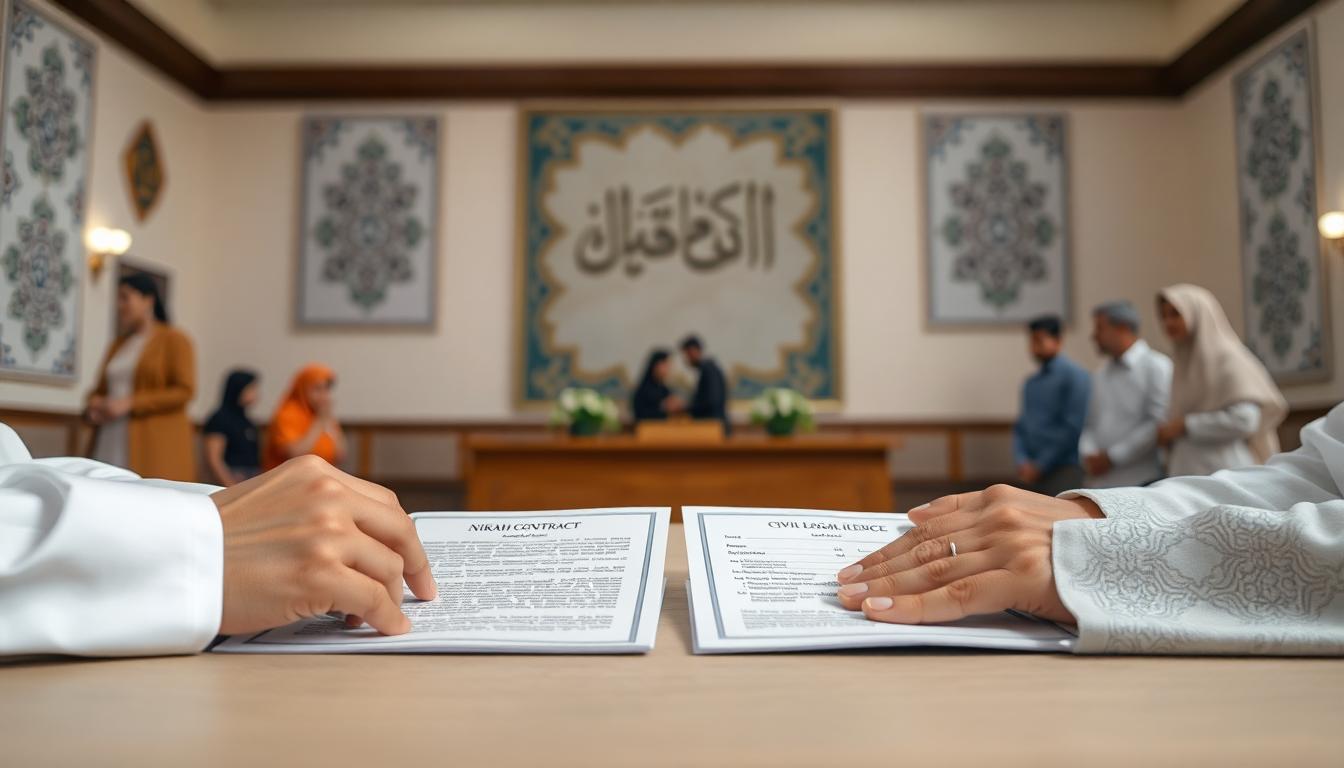 Couple signing civil marriage license and Nikah contract in a court setting — Image created with AI
Couple signing civil marriage license and Nikah contract in a court setting — Image created with AI
Conclusion
Muslim marriage holds a sacred place, grounded in sincere commitment defined by clear, mutual consent and the presence of trustworthy witnesses. These elements protect the dignity and rights of both partners, making the union genuine and respected. Understanding the Quranic guidance alongside contemporary legal frameworks helps couples honor their faith while securing their rights in today’s world. Following these principles brings not only legitimacy but a strong foundation for a fulfilling life together. Thank you for investing your time in exploring this important topic; your respect for these practices strengthens the meaning of marriage in Muslim communities everywhere.

